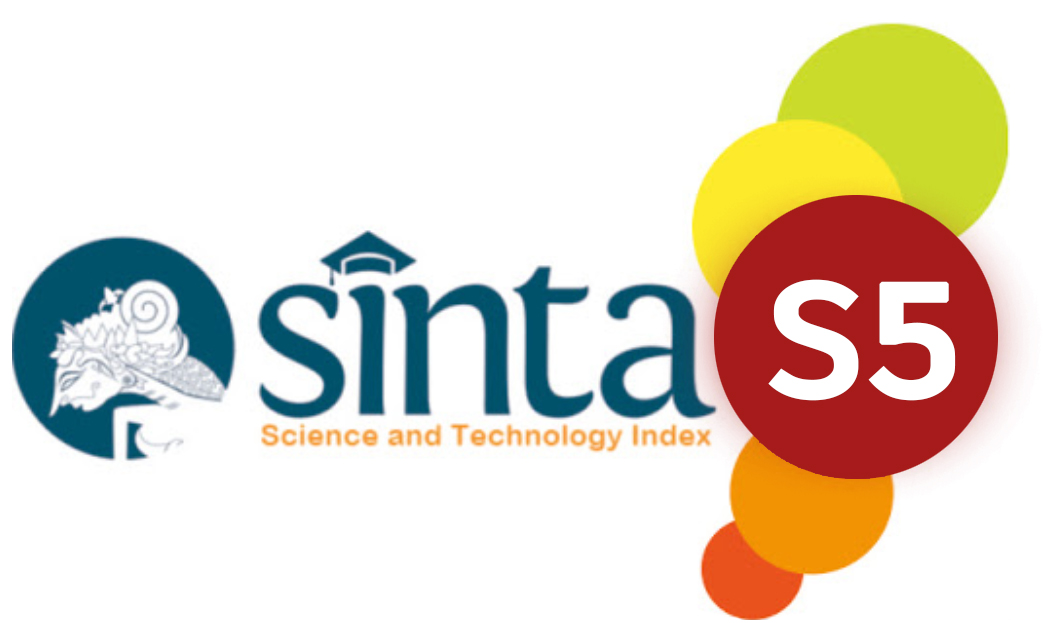SWOT ANALYSIS OF SABRI KUPI COFFEE SHOP IN LHOKSEUMAWE CITY
DOI:
https://doi.org/10.61393/heiema.v4i1.379Keywords:
SWOT Analysis, Coffee Shop, Business StrategyAbstract
This study aims to comprehensively analyze the Strengths, Weaknesses, Opportunities, and Threats (SWOT) of Sabri Kupi Coffee Shop, a local business located in Lhokseumawe City, Aceh. Sabri Kupi was established in 2020, coinciding with the COVID-19 pandemic, and has since positioned itself as one of the coffee shops serving traditional Acehnese coffee while providing a comfortable space for social interaction. The research employs a descriptive qualitative method, with data collected through direct observation of the coffee shop’s operations and semi-structured interviews with the owner, employees, and regular customers. The findings reveal that Sabri Kupi has several notable strengths, including its strategic location, the distinctive taste of Aceh coffee, a friendly atmosphere, and adequate facilities. However, the study also identifies weaknesses, particularly limited promotional strategies and heavy reliance on coffee-based beverages. In terms of opportunities, the increasing trend of coffee consumption and the strong culture of socializing in coffee shops present significant prospects for business development. Conversely, threats primarily stem from the intense competition among numerous coffee shops in the surrounding area and the shifting preferences of consumers. Based on the SWOT analysis, this study provides insights and recommendations to strengthen Sabri Kupi’s market position, improve promotional efforts, and explore product diversification as strategies to enhance competitiveness in the local coffee industry.
References
Bilung, R. (2016). Strategi Perusahaan dan SWOT. Malang: Literasi Nusantara.
Chalirafi, Matriadi, F., Munandar, Sutriani, & Mariana. (2021). The Influence of Consumer Innovatively, Company Reputation, and E-Trust on E-Loyalty of E-Commerce Customers in Aceh. Asian Journal of Economics, Business and Accounting, 21(16), 40–49. https://doi.org/10.9734/ajeba/2021/v21i1630483
Cresswell, J. W. (2018). Qualitative Inquiry and Research Design: Choosing Among Five Approaches. Los Angeles: Sage Publications.
Diyanti, L. (2018). Analisis SWOT dalam Praktik Bisnis. Jakarta: Bumi Aksara.
Fajar, A. (2016). Manajemen Strategik: Pendekatan SWOT. Bandung: Yrama Widya.
Fatimah, F. N. A. D. (2016). Teknik Analisis SWOT. Jakarta: Anak Hebat Indonesia.
Freed, B., Istiqomah, M., & Andriyanto, B. (2017). Dasar-dasar Manajemen Strategis. Jakarta: CV. Vision Media.
Hendrawan. (2021). Analisis SWOT dalam Bisnis. Yogyakarta: Multi Pressindo.
Hidayati, N. (2018). Strategi Bisnis dalam Perspektif SWOT. Yogyakarta: Kaukaba Dipantara.
Innayatuhibbah, G., Rahayu, E., & Ferichani, M. (2024). Export competitiveness of indonesian coffee in the united states market. Scientific Horizons, 27(2), 125-135. https://doi.org/10.48077/scihor2.2024.125
Isniati, M., & Rizki, R. (2019). Manajemen Bisnis Kontemporer. Surabaya: Pustaka Cendekia.
Mariana, M., & Ibrahim, I. (2021). Peran DPR dalam Pengangkatan Duta Besar Setelah Amandemen UUD 1945. Jurnal Tahqiqa: Jurnal Ilmiah Pemikiran Hukum Islam, 15(1), 1–14.
Mariana, M., & Rahmaniar, R. (2022). Pengaruh Motivasi dan Independensi Auditor Terhadap Kinerja Auditor. HEI EMA : Jurnal Riset Hukum, Ekonomi Islam, Ekonomi, Manajemen Dan Akuntansi, 1(2), 76–86. https://doi.org/https://doi.org/10.61393/heiema.v1i2.74
Mariana, M., Nadirsyah, N., & Abdullah, S. (2018). Informasi Akuntansi, Informasi Non-Akuntansi, Dan Keputusan Pemberian Kredit. Jurnal Reviu Akuntansi Dan Keuangan, 8(2), 177. https://doi.org/10.22219/jrak.v8i2.37
Martauli, E. (2018). Analysis of coffee production in indonesia. Jasc (Journal of Agribusiness Sciences), 1(2), 112-120. https://doi.org/10.30596/jasc.v1i2.1962
Moleong, L. J. (2019). Metodologi Penelitian Kualitatif. Bandung: Remaja Rosdakarya.
Mulyono, A., Apnitami, P., Wangi, I., Wicaksono, K., & Apriono, C. (2022). The potential of smart farming iot implementation for coffee farming in indonesia: a systematic review. Green Intelligent Systems and Applications, 2(2). https://doi.org/10.53623/gisa.v2i2.95
Mulyono, A., Rahmawati, D., & Pratama, A. (2022). Analisis SWOT sebagai dasar perumusan strategi pengembangan usaha mikro. Jurnal Ekonomi dan Bisnis, 15(2), 112–124.
Nazarudin. (2020). Dasar-Dasar Manajemen Strategis. Jakarta: Prenadamedia.
Nevriansyah, E., Rasafina, D., Sari, N., Selviani, R., Wahidzal, F., Faridah, A., … & Marsila, N. (2022). Baldako healty (herbal coffe leaf) : practical economics and antioxidant anti- inflamantory drink inovation. Epicentrum, 1(01), 10-19. https://doi.org/10.54482/epicentrum.v1i01.46
Ni’mah, M., Lestari, D., Maulida, A., & Hasbullah, U. (2021). Review of various influential factors in the production of robusta coffee effervescent drink tablets. International Journal of Advance Tropical Food, 3(1), 35-43. https://doi.org/10.26877/ijatf.v3i1.9349
Okim, F., Hanani, N., & Syafrial, S. (2022). The impact of input and output prices on indonesian coffee production and trade performance. Habitat, 33(1), 33-43. https://doi.org/10.21776/ub.habitat.2022.033.1.4
Rahayu, S. (2020). Manajemen Strategi. Bandung: Alfabeta.
Rahmah, K. and Satyaninggrat, L. (2023). The the effect of consumer characteristics and lifestyle toward purchase decision. Journal of Consumer Sciences, 8(3), 395-413. https://doi.org/10.29244/jcs.8.3.395-413
Rangkuti, F. (2015). Analisis SWOT Teknik Membedah Kasus Bisnis. Jakarta: PT Gramedia Pustaka Utama.
Rodiyah, M., & dkk. (2018). Studi Kasus Manajemen Strategis. Semarang: Unnes Press.
Romdhoningsih, D., dkk. (2022). Laporan Perkembangan Produksi Kopi di Indonesia 2021–2023. Jakarta: Kementerian Pertanian.
Rosiana, N. and Feryanto, F. (2022). Farmer sales decisions and the sustainability of the coffee supply chain in indonesia. Iop Conference Series Earth and Environmental Science, 1107(1), 012083. https://doi.org/10.1088/1755-1315/1107/1/012083
Saputra, R., & Kasumaningrum, D. (2022). Peran Analisis SWOT dalam Pengembangan UMKM. Jurnal Manajemen Strategi, 10(4), 1806–1815.
Sugiyono. (2020). Metode Penelitian Kuantitatif, Kualitatif, dan R&D. Bandung: Alfabeta.
Wijayati, N. (2019). Strategi Pengembangan Usaha melalui SWOT. Yogyakarta: Deepublish.
Yanuarti, R. and Widjaya, D. (2023). Variability of factors influencing coffee export performance in indonesia.. Pelita Perkebunan (A Coffee and Cocoa Research Journal), 39(3), 260-270. https://doi.org/10.22302/iccri.jur.pelitaperkebunan.v39i3.556
Zuhdi, F. and Yusuf, R. (2021). Export competitiveness of indonesian coffee in germany. Habitat, 32(3), 130-140. https://doi.org/10.21776/ub.habitat.2021.032.3.15
Downloads
Published
How to Cite
Issue
Section
License
Copyright (c) 2025 Eka Saputri, Reza Mauliza, Assyifa Anzar Miati, Nurmila Tina, Intan Cahyani Rachman, Zulfikar Zulfikar, Yusmika Indah

This work is licensed under a Creative Commons Attribution 4.0 International License.
























